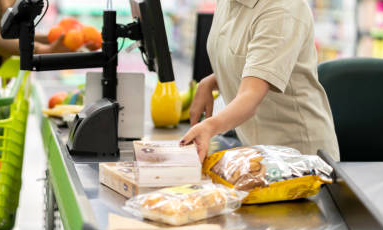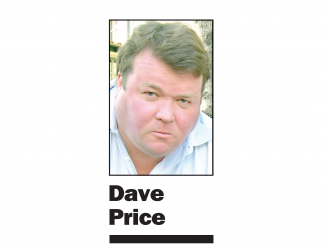
BY EMILY MIBACH
Daily Post Staff Writer
A split San Carlos City Council tonight (March 22) backed away from a proposal to force grocery stores and pharmacies pay workers Covid “hazard pay,” with some council members citing concerns about litigation against cities that passed similar laws.
The council did not vote, but by the end of the conversation, it was clear that three council members were against the idea of hazard pay and two were for it.
Mayor Laura Parmer-Lohan and councilman Adam Rak wanted the city attorney to write ordinance requiring hazard pay and bring it back to council for a vote.
But council members Sara McDowell, Ron Collins and John Dugan disagreed.
“I don’t know how many common sayings apply to this, that it’s a slippery slope, a can of worms … we don’t know where this will go,” Collins cautioned at the beginning of the council’s discussion.
“I say that as a son of a grocer, I am sensitive to this. But this is a labor and management issue,” Collins said.
So far, the county of Santa Clara County, Daly City, San Mateo, Millbrae and South San Francisco have approved hazard pay, which has also been called “hero pay.”
Redwood City Council on March 8 also looked at the idea of hazard pay and will be discussing an ordinance next month.
Daly City, along with San Jose, is currently facing lawsuits from the California Grocers Association, which claims the ordinances violate federal collective bargaining laws.
Similar suits in other parts of the country have not been successful so far. A federal judge on Feb. 25 denied the association’s request for a preliminary injunction against Long Beach to delay the implementation of hazard pay. The Kroger Co. closed its stores there.
McDowell asked City Attorney Greg Rubens about the cost of any lawsuits the city would face if it passes a hazard pay ordinance.
Rubens estimated that to defend a lawsuit that goes to trial, it would cost the city over $250,000.
McDowell pointed to some of the budget cuts the council had to approve because of how the pandemic had hammered the city budget and said that San Carlos doesn’t have the budget that some of the other, much larger, cities that have approved hazard pay have
Parmer-Lohan, who is running for county supervisor in 2022, said that under normal circumstances she would not be in favor of inserting the city into business, but decided to have the council discuss the idea after learning that 1 in 5 grocery workers have contracted Covid.
Collins wondered aloud why the council hadn’t taken up the issue some 10 months ago when the pandemic was just beginning.
“It’s never the wrong time to do the right thing. We don’t know where Covid will go with these variants,” Parmer-Lohan responded.
She added that the vaccine rollout hasn’t gone as expected. She also suggested giving stores such as Trader Joe’s or Lucky’s — which voluntarily increased pay for workers because of the pandemic — a credit on the hazard pay.
Many cities have required a $5-an-hour increase for hazard pay, though San Carlos hadn’t set an amount.
Dugan also questioned why only grocery and pharmacy workers were included in the hazard pay proposal when many other workers were facing the public in their jobs.
Leon Wong, a representative with retail workers union UFCW Local 5, said that since everyone has to go to the pharmacy or grocery store, the people who work at those businesses see a high volume of customers, which is what puts them at a greater risk of Covid exposure compared to other industries.
Dugan suggested that the council instead look at its minimum wage ordinance again to help a wider variety of people out economically. He also suggested using federal funds the city gets to help low-income workers or residents in town.
McDowell also pointed out that Trader Joe’s and Lucky’s, which are two of the main grocery stores in town, are already paying their employees more during the pandemic.
But Rak pointed out that some stores boosted pay for a while and then returned to pre-pandemic pay levesl. He said that perhaps businesses ought to be pushed into doing the right thing by their employees.
Since the beginning of the pandemic, Trader Joe’s has been paying an extra $2 an hour. In February it bumped its “thank you” pay by another $2 to a total of $4 per hour, according to a report from Assistant City Attorney Tara Peterson.
Lucky’s increased hourly pay by $2.50 to $3.50 beginning March 2020, which has not ended.
The other stores in the city are Walgreens, CVS and Dollar Tree. CVS and Walgreens gave one-time bonuses to employees and Dollar Tree says it has invested over $200 million in hourly-paid employees, according to Peterson’s report.




Glad you pointed out the raises these employees got. Nobody forced these companies to raise their pay. The market system did that. The stores wanted to retain their workers, so they paid more. No city council action was necessary.